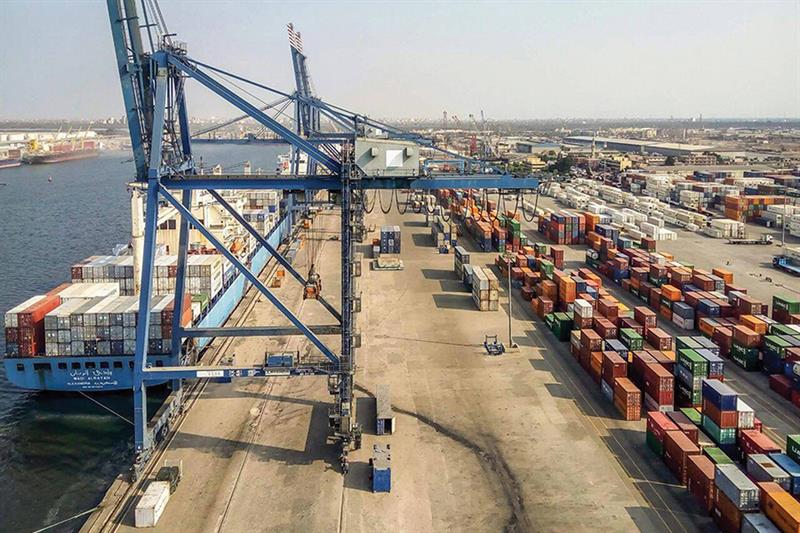[ad_1]
The total value of goods released from Egypt’s backlogged ports since the beginning of December has reached $5 billion, according to a cabinet statement issued last week.
The goods include food products, medicines, and production materials. There are still $9.5 billion worth of goods stuck in different Egyptian ports that the government is working to release.
A dollar shortage resulting from the war in Ukraine has made it harder for importers to secure the liquidity to cover the letters of credit that the Central Bank of Egypt (CBE) introduced in March to limit imports.
The requirement of the letters put importers in a difficult situation, as the banks were not able to provide them with the necessary dollars to secure them, and non-bank-supplied dollars cannot be accepted as this could encourage black-market transactions.
As a result, billions of dollars’ worth of commodities have been piling up in the ports, limiting the supply of commodities in the market and pushing up inflation. Egypt’s annual inflation rate surged to a five-year high of 18.7 per cent in November.
However, on the day that Egypt announced that it had reached a new agreement with the International Monetary Fund (IMF) in late October, Hassan Abdallah, the CBE governor, announced that the CBE would “gradually” roll back the measure.
During the inauguration of a factory in Abu Rawash last week, President Abdel-Fattah Al-Sisi said that the local banks will provide importers with the dollars required to cover letters of credit for goods stuck at the ports “within the coming four days”.
The letter of credit requirement was fully scrapped on 1 January.
The latest batch of goods to be released includes cooking oil, legumes, meat, and animal feed worth $300 million, the cabinet statement said.
“Some 1.2 million tons of corn and 450 tons of soy were also ordered for release,” said Abdel-Aziz Al-Sayed, head of the Poultry Division at the Cairo Chamber of Commerce.
However, the order does not mean that the goods will be available in the market in the next few days. “Release orders take time to be implemented. It is important to follow up on the process to monitor selling prices to the final consumer,” Al-Sayed said.
Increasing the availability of goods is the first step to reducing prices, he said, because it bridges the gap between supply and demand. A ton of animal fodder had reached LE24,000, but it is now being sold for LE20,000, he added.
The Federation of Egyptian Chambers of Commerce, headed by Ibrahim Al-Arabi, held a meeting on 1 January with representatives of different divisions of the Ministry of Supply to follow up on release procedures and the price of the dollar at the time of release, Al-Sayed said.
The prices of poultry and eggs have been steadily increasing over the past month on the back of an increase in the prices of fodder internationally and the appreciation of the dollar against the pound. A kg of poultry jumped to LE51 at farms, compared to an average of LE35 a year ago, Al-Sayed added.
The release of the goods from the ports will allow the food industry to pick up pace, said Iman Yehia, an industrial and consumption sector analyst at Arab African International Securities.
She noted that the stranded goods had led one company to halt production due to the unavailability of palm oil. The time that the goods have spent piling up in the ports will not lead to further price increases, she said, explaining that the majority of food-manufacturing companies had earlier begun to raise prices due to anticipations of an increase in the prices of raw materials.
Consumers will not see any sudden jump in prices, and the market share of companies will not suddenly decrease, Yehia said.
The automobile market has also been seeing price hikes, with a lack of supply leading to overpricing.
Khaled Saad, secretary-general of the Egyptian Automobile Manufacturers Association, said the decision to release goods stranded at the ports would not affect the automobile market because no vehicles were stranded.
But the decision would benefit vehicle manufacturers and people looking for spare parts, he added.
*A version of this article appears in print in the 5 January, 2023 edition of Al-Ahram Weekly
Short link:
[ad_2]
Source link








